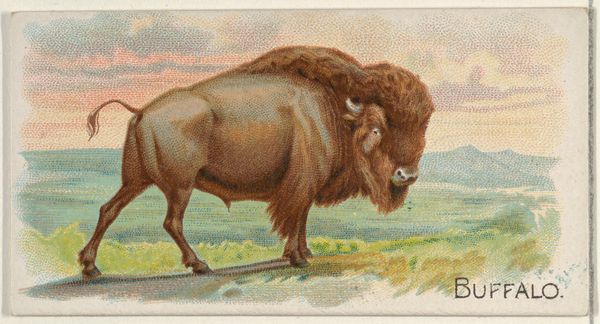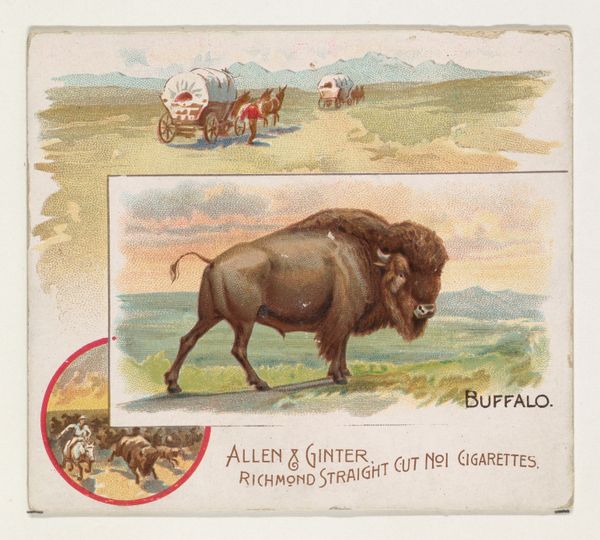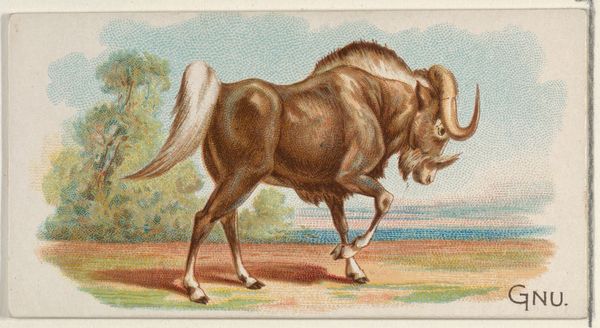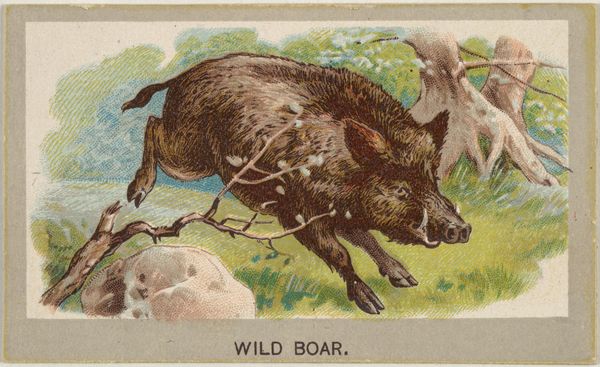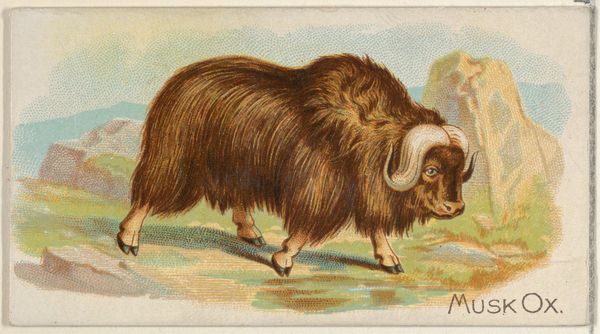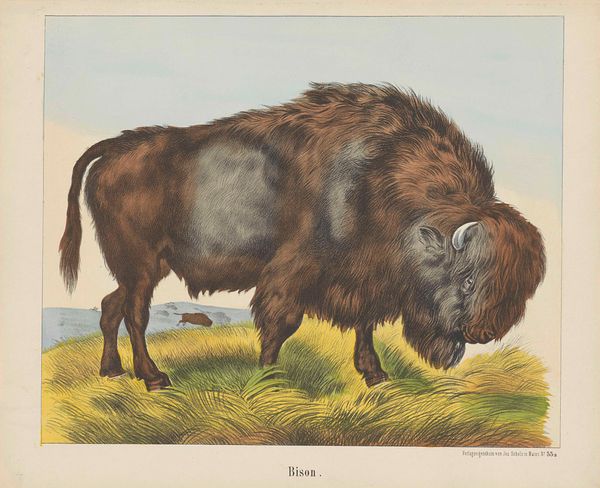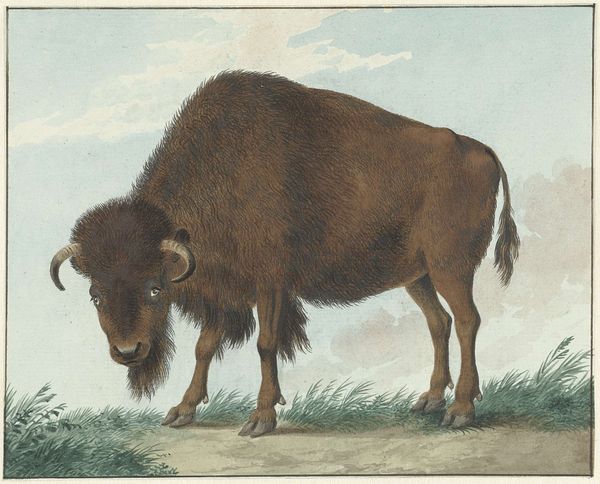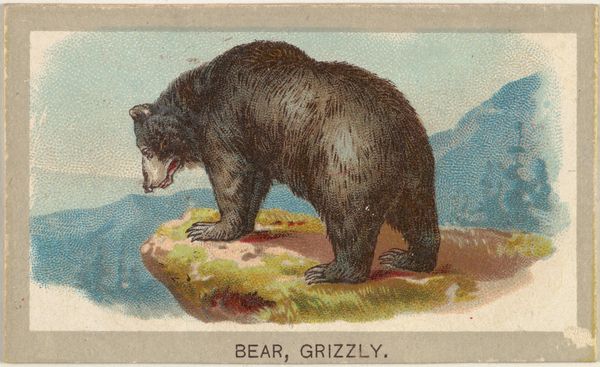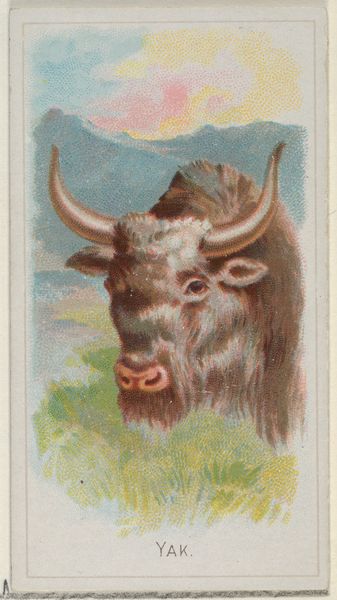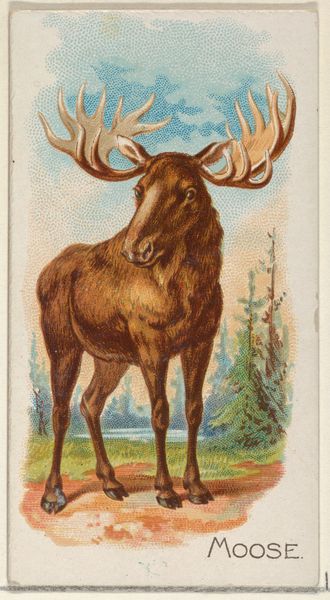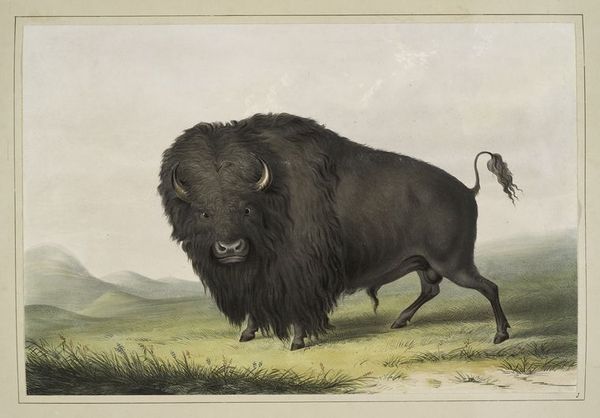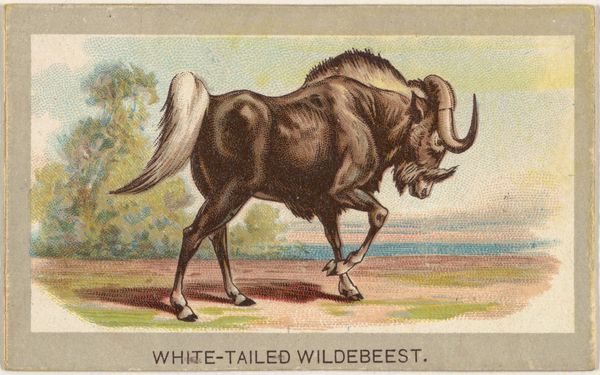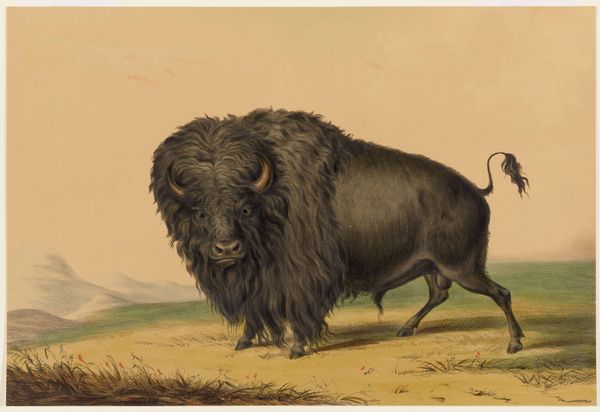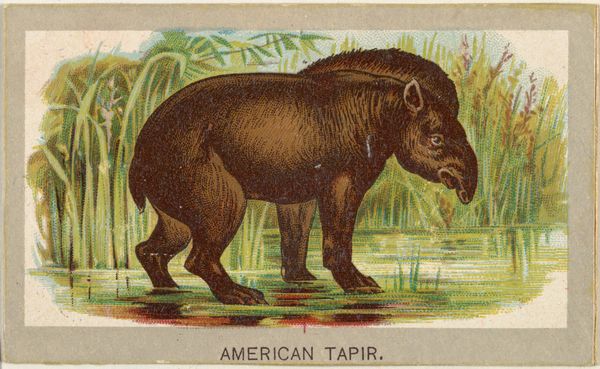
American Bison, from the Animals of the World series (T180), issued by Abdul Cigarettes 1881
0:00
0:00
drawing, coloured-pencil, print
#
drawing
#
still-life-photography
#
coloured-pencil
# print
#
landscape
#
figuration
#
coloured pencil
#
genre-painting
#
history-painting
#
realism
Dimensions: Sheet: 1 5/8 × 2 3/4 in. (4.2 × 7 cm)
Copyright: Public Domain
Curator: I am immediately struck by this bison's quiet stoicism, set against that pale sunset sky. It exudes a serene strength that's deeply appealing, like an old soul just hanging out. Editor: Today we’re observing "American Bison," from the Animals of the World series (T180), created around 1881, issued by Abdul Cigarettes. It resides here at the Metropolitan Museum of Art. This drawing, likely a coloured pencil print, situates itself within broader historical narratives around American expansionism, the construction of wilderness, and the decimation of indigenous populations intricately linked with the bison's fate. Curator: That's quite a heavy historical load for a little picture on a cigarette card to bear, but I see your point. Knowing that it was printed around 1881 makes that placid gaze feel…complicated. It's not just a bison; it is a loaded symbol in a contested landscape. I find myself wondering if this specific animal perhaps escaped wholesale slaughter or maybe it didn't. Editor: Absolutely, this artwork—ostensibly an innocuous piece of advertisement— functions as a microcosm of prevailing attitudes. It reinforces the colonial gaze, framing the bison as an exotic commodity against a receding frontier landscape. Curator: Thinking about that colonial gaze…did the folks smoking these cigarettes think about how they're puffing away while an entire ecosystem—a way of life—went up in smoke, too? There is something disquieting when viewed from today's standpoint. Editor: Right, examining the materials through which these images circulated brings forward those questions around agency, ownership, and representation. Curator: Well, suddenly that "serene strength" feels more like forced resignation, doesn’t it? Makes you think about all the unspoken stories packed into these mass-produced objects. Editor: Exactly. Its function in relation to our ongoing discussions surrounding environmental justice, indigenous rights, and historical memory must not be dismissed. Curator: It definitely leaves me contemplating how seemingly innocent images can mask deep-seated power dynamics. Thanks, I see that poor bison in a different light now, loaded but more interesting than when we started, to be sure. Editor: Yes, even a simple image like this asks us to consider its place within larger societal structures. An unexpectedly evocative and challenging object!
Comments
No comments
Be the first to comment and join the conversation on the ultimate creative platform.
